Orioles' chemistry experiment, White Sox vs. relegation, and 7 more thoughts
Starting Lineup is a biweekly collection of reporting, observations, and insights from the baseball beat, published every other week during the regular season.
Leading off …
A day after being acquired by Baltimore at the trade deadline, Trevor Rogers entered the visiting manager's office in Cleveland.
It's unusual for pitchers to pop in to speak with their manager before a start, but Rogers and Orioles manager Brandon Hyde had never met.
"He's like, 'Oh, you're starting for me today, aren't you?'" Rogers recalled of the conversation.
"I am," Rogers responded. "Nice to meet you," Hyde said.
"It was definitely a crazy day."
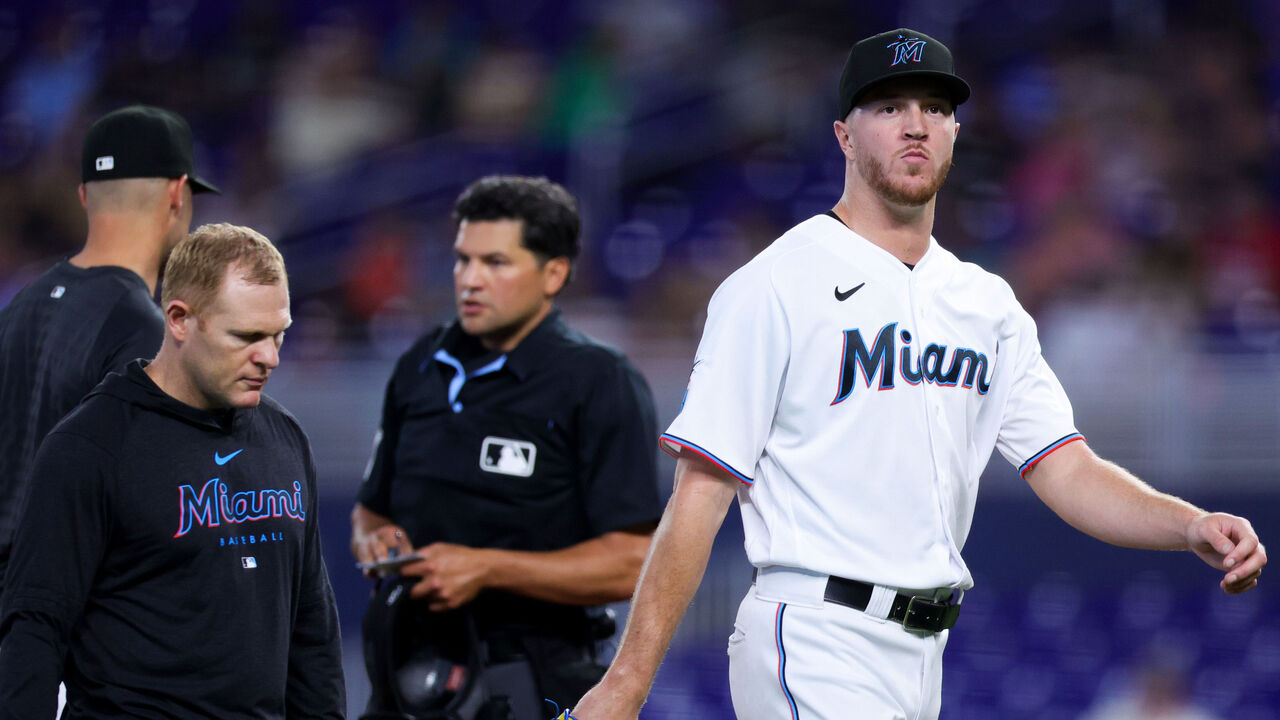
There were a lot of meetings and greetings in Baltimore's clubhouse after the trade deadline. No team was more active than the contending Orioles, who made seven deals in the four days before the July 30 cutoff.
"This is probably, I think, the most (new) faces I think I've ever come across as far as adding at a deadline," Orioles ace Corbin Burnes told MLB.com's Jake Rill.
Baltimore addressed weaknesses in its rotation and added potential positional upgrades. But did the Orioles do too much? Can too many moves disrupt team chemistry? That's what former Colorado Rockies general manager Dan O'Dowd suggested on MLB Network.
O'Dowd said when he was general manager of the Colorado Rockies, manager Clint Hurdle cautioned him about the "unintended consequences" of trades and player movement.
"'Every decision you make that you think affects one player is affecting 10 more,'" he recalled Hurdle saying.
"Let me give you an example. They bring in (Austin) Slater. Now (Orioles center fielder) Cedric Mullins goes, 'Well, I'm not going to play against left-handed pitching. This is my last year. I'm gone.' … So, all of them start to think about themselves a little bit, and all they were thinking about up until that point was the team."
Dan O'Dowd - Orioles acquiring 7 players at trade deadline detrimental to team chemistry (not in a spreadsheet) vs. strategic trades.
— Tony Wuench (@twuench) July 31, 2024
O'Dowd also on lesson he learned while Rockies GM from Manager @ClintHurdle13 - every decision a GM makes effects multiple players. #shegone pic.twitter.com/XqEXNnDIjP
I asked the Orioles if there was anything to the idea of too much change mid-season.
"I think improving the roster improves chemistry, honestly," Hyde said. "Guys are excited when they feel like the organization is making improvements to the club.
"Everyone has their own individual egos and individual goals, and the best teams are the ones that can separate them, especially this time of year and push. I'm not concerned at all about our leadership on our team, or culture being changed in any way."
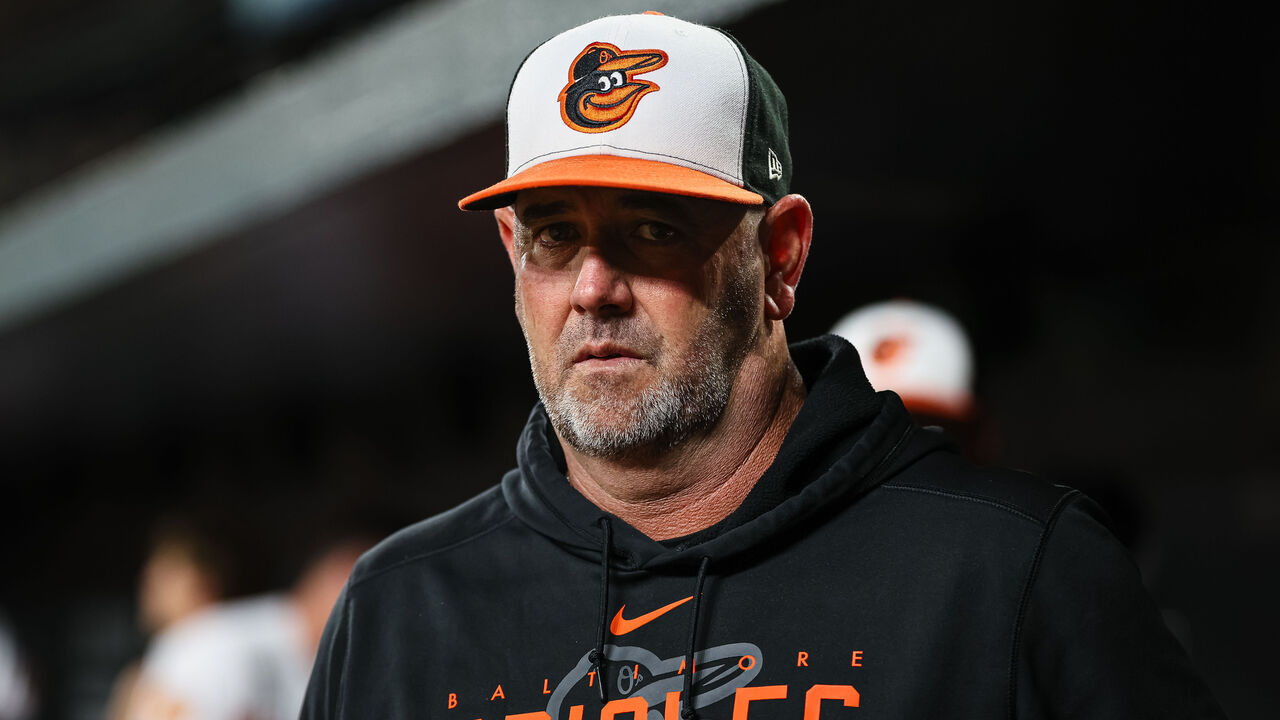
The Orioles also acquired starting pitcher Zach Eflin, marking the first time he's been traded at the deadline.
"The good thing about this clubhouse is there was already chemistry established when I got here," Eflin said. "At the end of the day, we're here to win games. Winning games creates chemistry. "
How does he define chemistry?
"If you have guys pulling in different directions, you might go out and play and not feel as comfortable, worried they don't have your back. … Pulling in the same direction is the freest and easiest way to play the game."
The Orioles split their first eight games after July 30. We'll have to wait and see whether there's anything to there being too much disruption.
2. A missed opportunity
I love MLB's alternative sites. The Field of Dreams outings and the game at Rickwood Field in Alabama were compelling venues.
MLB announced another site Thursday - a contest to be played next year between the Braves and Reds on the infield of Tennessee's Bristol Motor Speedway.
Setup for the “Speedway Classic” at Bristol Motor Speedway in Bristol, TN between the @Reds and @Braves to be held 8-2-25.
— MLB Cathedrals (@MLBcathedrals) August 9, 2024
It seats 146k for racing.
Images via @ItsBristolBaby pic.twitter.com/OFN5HYNZKD
But there's a missed opportunity here. The curvature of one of the turns of the track ought to be incorporated into the outfield dimensions. A Polo Grounds-like hybrid would offer incredible entertainment.
Big picture: It's good to see the league being more creative with one of the things that makes the sport unique - its venues and non-uniform playing dimensions.
3. White Sox have me thinking about relegation
The Chicago White Sox are one of the worst MLB teams we've seen in recent years - and there have been plenty.
This week, they tied the AL record for consecutive losses with 21, only to break the streak with Wednesday's win over the Oakland A's.
They're on pace for a 39-123 mark, which would surpass the 1962 New York Mets for the most losses in an MLB season. If Chicago's .239 winning percentage holds, it would be the second worst among teams to lose 100-plus games, trailing only the 1916 Philadelphia Athletics (.235). They lost 117 contests.
It's not as if the White Sox are tanking on purpose; they have no incentive to do so. Since they don't receive revenue-sharing payments, they're not eligible for a lottery pick in consecutive seasons. They can't pick any earlier than 10th in the 2025 draft.
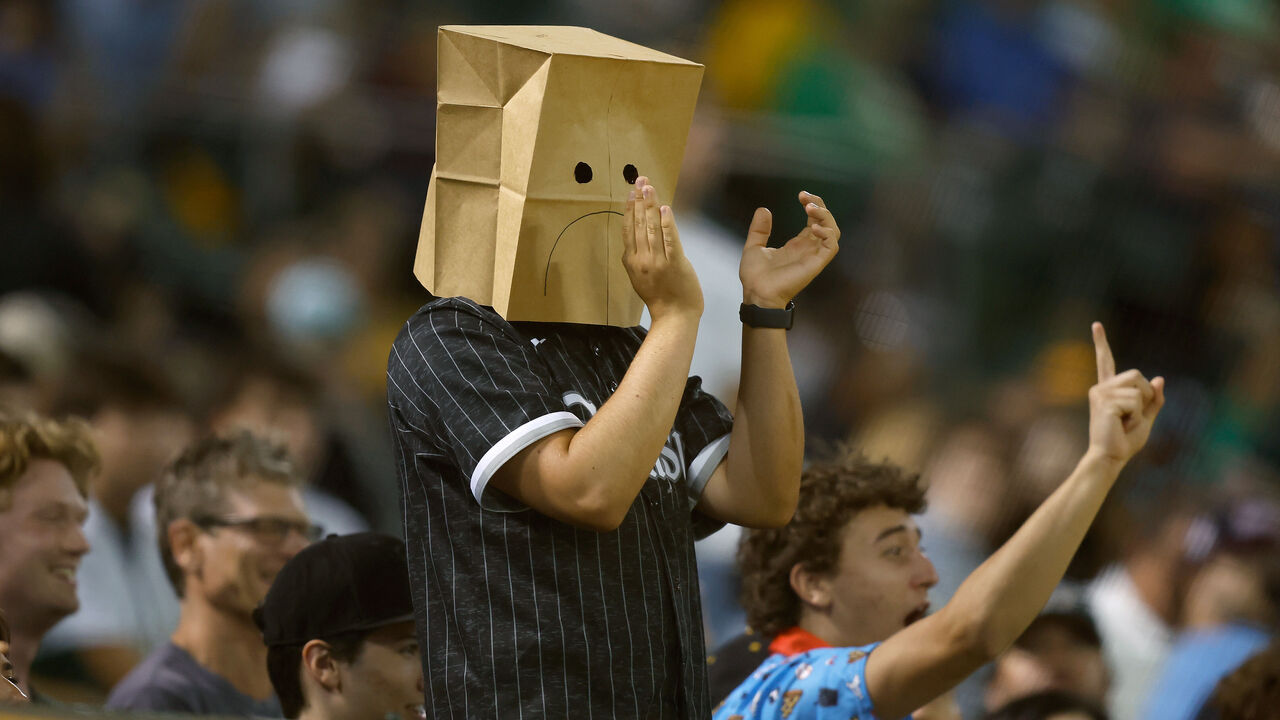
The White Sox are hardly the lone unwatchable team. The Marlins and Rockies are also playing sub-.400 baseball. The Rockies haven't had a .500 campaign in six years. The Angels are working on their ninth straight losing season.
Perhaps more incentive to not be terrible would help.
Owners in North American pro sports will never embrace a soccer-style relegation system, but perhaps there could be an MLB hybrid that would add fan interest and revenue to owners' coffers. Perhaps a structure something like this: the two worst teams in each year become ineligible for a wild-card berth the following campaign. (Winning a division would be the only way to become postseason-eligible the following year.)
Three of the 20 Premier League teams are relegated at the end of each campaign. The baseball equivalent would be roughly four such teams - two from each league.
What would that look like in 2024?
In the American League, the Blue Jays and Angels would be above the cutline - but not by enough to not be nervous and motivated down the stretch. The Athletics, 3.5 games back of the Angels, would be just below the line. The White Sox would be hopeless, 24 contests behind the 13th-ranked Angels.
The National League would be less dramatic.
The Reds and Nationals are comfortably ahead of the NL's worst two teams: the Marlins and Rockies. (If such a format existed, it would change club behavior to some degree.)
The 2023 campaign would've been different.
The Cardinals and Washington Nationals finished tied for the 13th-best record. A game No. 163 to avoid the playoff penalty. That would be must-see television in those markets.
In the AL, the White Sox finished four games ahead of the Royals, who would need to win the division to reach the playoffs this year.
Is this all a pipe dream? Probably. But it would make late-summer games more interesting for more teams. It would increase incentives while avoiding economic consequences for owners, whose clubs would still remain in the majors and might even sell more tickets as they try to avoid hybrid relegation.
4. MVP chase
Remarkably, Bobby Witt Jr. has surpassed Aaron Judge in FanGraphs' version of WAR (8.1 to 7.9) and narrowly trails him in Baseball-Reference's (7.9 to 7.5).
Witt's red-hot July - .489 average, seven homers, 26 RBIs - has made it an MVP race between him and Judge, who has a shot to reach 60 home runs again.
The Royals bet on Witt before the season, signing him to an 11-year, $288-million contract. It appears to have been a prudent decision.
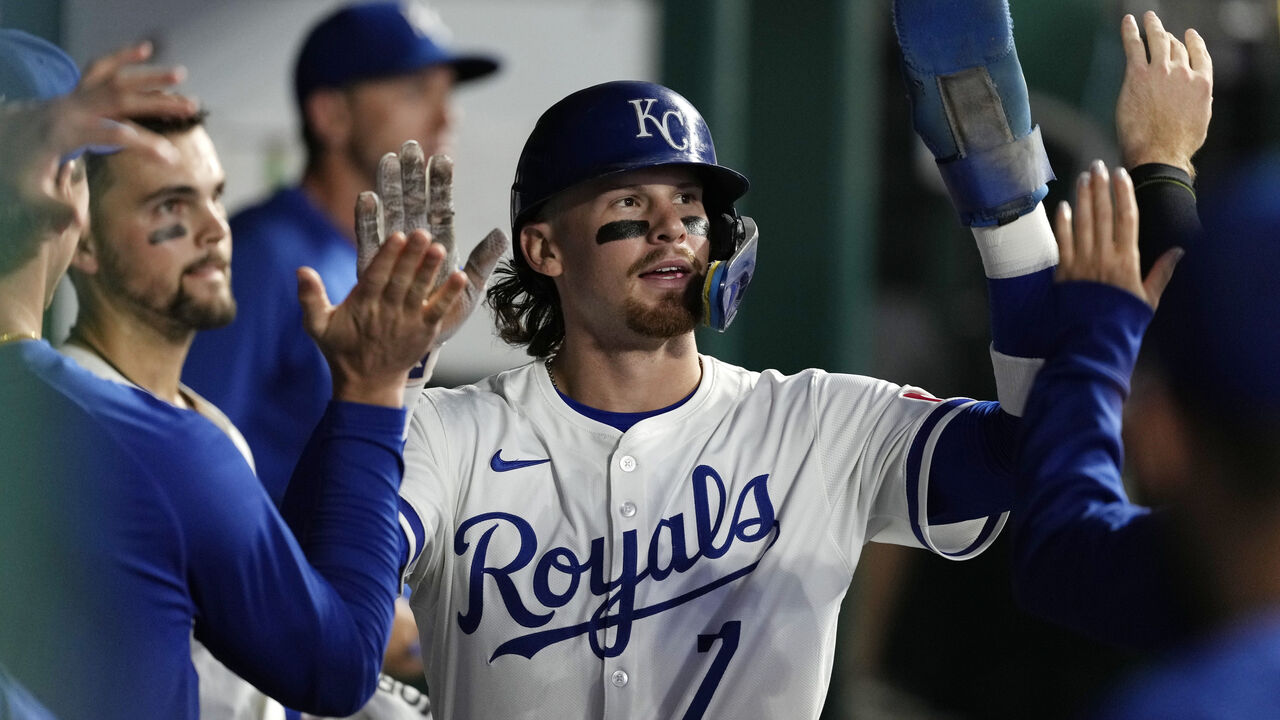
5. A wunderkind's path
When the Orioles were in Cleveland, I was curious to ask the son of a major leaguer, Jackson Holliday, what growing up was like when it came to practice. Did his father, Matt Holliday, take him out to the backyard for 500 swings a day? Was it an intense experience?
"Never anything like that," Holliday said. "The majority of the time during the offseason, we were playing basketball. Baseball was a summertime sport."
Holliday said his parents didn't even have a batting cage on their property until this past winter.
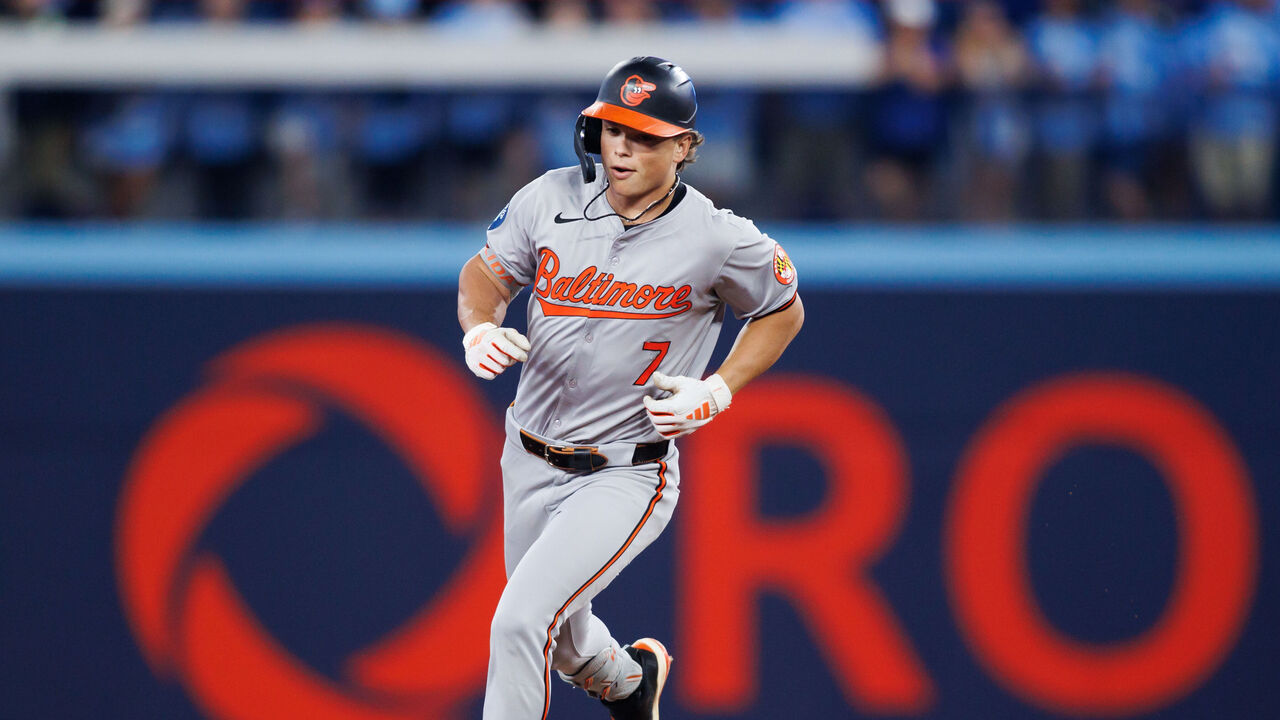
When they did practice, it was more game-like, with Matt trying to strike out Jackson and his brother, Ethan, or play Home Run Derby.
He said the only coaching cue from his father seared into his memory is "to hit line drives over the shortstop's head."
Happy Hollidays! 💪
— MLB (@MLB) December 2, 2023
Metal bat home run derbies are a family affair for Jackson, Matt and Ethan Holliday.
(via YT/@BaseballBatBros) pic.twitter.com/oiskyIaOy6
He said he didn't become active in travel baseball until he was "13 or 14" - not long ago, since he's 20.
Put Holliday in the camp of anti-specialization of skill development. It might not work for everyone, but it worked for the game's top prospect.
6. Switch-hitting blues
There's a growing sentiment that switch-hitters with wide splits ought to give up on their weaker side.
Reds star Elly De La Cruz not only has a below-average wRC+ from the right side, but his right-handed average bat speed is significantly lower than the left side (73 mph versus 75.6). At age 22, De La Cruz has time to get better.
Adley Rutschman's struggles from the left side, though, appear more like an outlier.
This season, his bat speed is balanced on both sides of the plate (69.4 mph as a left-handed hitter, 68.9 mph as a right). Rutschman's career wRC+ is above average from both sides of the plate (121 wRC+ from the left side, 138 from the right).
Switch-Hitter wRC+ by Handedness pic.twitter.com/07P37U6S0x
— Thomas Nestico (@TJStats) August 8, 2024
7. Wide-open race
For just the second time since 2017, there were no teams with a 20% or better probability of winning the World Series as of Aug. 9, according to FanGraphs' playoff forecast. It's anyone's year. The Dodgers (16%), Yankees (15.2%) and Phillies (13.1%) are the only teams with double-digit chances.
8. How fast?
36-year-old Aroldis Chapman threw the fastest pitch in the majors at 105.1 mph on Wednesday night.
Aroldis Chapman's 105.1 MPH pitch was the fastest of the season 🔥
— MLB (@MLB) August 8, 2024
(MLB x @loanDepot) pic.twitter.com/NTrtnO2fEh
In the pitch-tracking era, he's thrown more 100 mph-plus pitches (3,717) than any other player, more than doubling that of the No. 2 arm Jordan Hicks (1,680).
9. Grind and Grifol
One thing I'll remember about Pedro Grifol's forgettable 2024 campaign as White Sox manager was a pregame decision on April 8.
He told reporters in Cleveland that he didn't have time to watch the solar eclipse even though he was in the path of totality. There won't be another total eclipse in the U.S. until 2044.
"I'll see videos of it … but there's baseball," Grifol said.
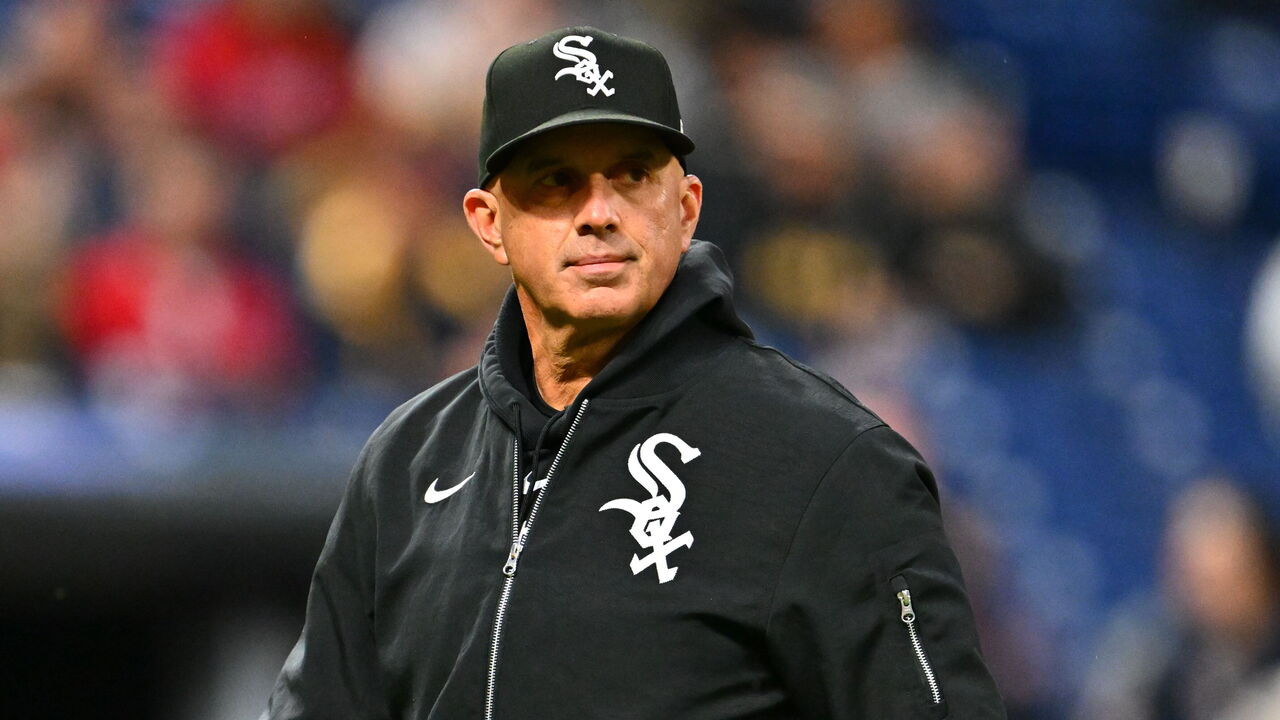
While that might seem admirable, Grifol might have been better served by taking time away from the grind.
Consider this from the Casualties of Perfection chapter from Morgan Housel's new book "Same as Ever:"
"The traditional eight-hour work schedule is great if your job is repetitive or physically constraining. But for the large and growing number of 'thought jobs,' it might not be.
"You might be better off taking two hours in the morning to stay at home thinking about some big problem. Or go for a long midday walk to ponder why something isn't working. …
"It's not about working less. It's the opposite: a lot of thought jobs basically never stop, and without structuring time to think and be curious, you wind up less efficient during the hours that are devoted to sitting at your desk and cranking out work. This is the opposite of the concept of 'hustle porn,' where people want to look busy at all times because they think it's noble."
I'd argue that being a major-league manager is a thought job today, especially with expanded coaching staffs and subordinates handling more of the instruction and preparation duties.
There's perhaps a lesson there for many in thought jobs - including MLB managers.
Travis Sawchik is theScore's senior baseball writer.